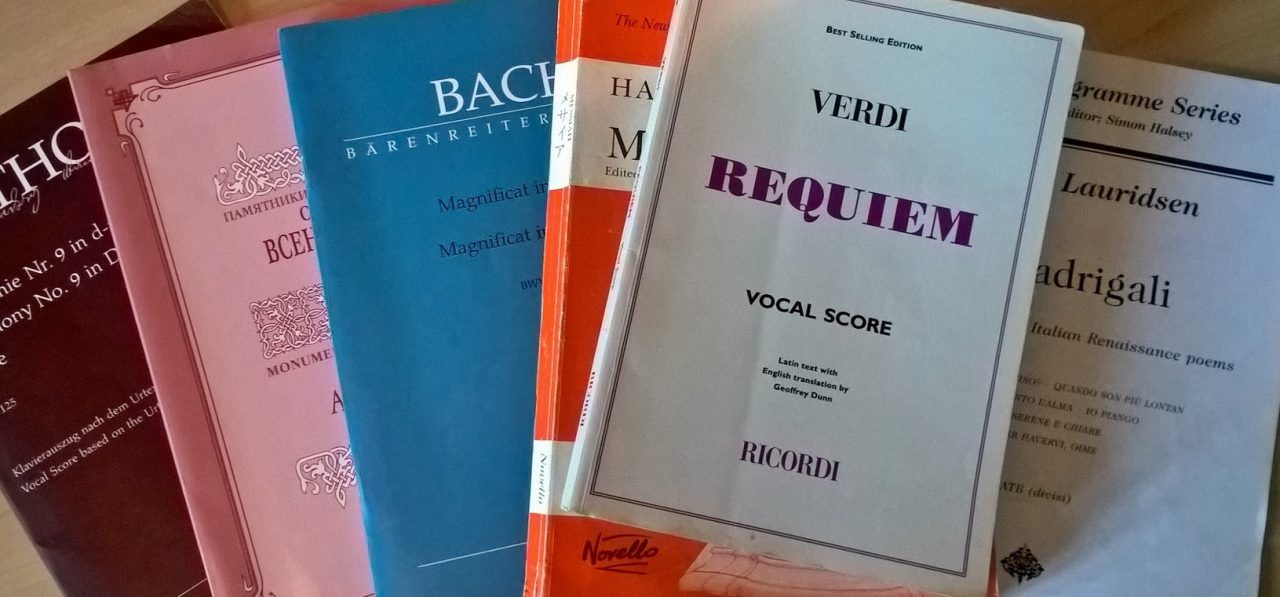
The blended, beautiful singing of the choir floats through the auditorium, delighting the audience. They wait in anticipation as the orchestra creeps in… a tone and a half higher than the choir.
It’s happened to the best of us. However much ‘smiling’ or ‘thinking high’ you’ve been doing the bloomin’ piece has gone as flat as that soufflé you once tried to impress your mother in law with. It’s the ultimate downfall of a cappella singing (that’s singing without accompaniment for the non Italian speaking or anyone who has not succumbed to Gareth Malone’s charms).
Now the trick is not to look like anything has gone wrong. You must master the art of looking serene and knowing, as if Bach or Tchaikovsky had intended a key change at that point, in a surprising precursor to the tactic favoured by popular music ballad writers when they’ve run out of ideas and feel that simply belting the music out a note higher will move things along nicely. You must maintain this look, even as your conductor is piercing you with a gaze that would slay dragons.
Correct pitching is a tricky thing at the best of times. In large choirs it can be even more challenging; there always seem to be some people (cough*tenors*cough) whose sense of pitch seems to be ever so slightly south of the norm, as if rooted in the Baroque period. A cappella singing requires choirs to have an incredible collective sense of musicality, of rhythm and pitch, and that’s what makes it amazing. And a little scary to perform.
Of course, it’s not the end of the world if the pitch goes a little wonky. Some pieces don’t have any accompaniment at all, so who is going to notice if you go off key? No one really, apart from possibly those cursed with perfect pitch and the basses, who may suddenly find themselves having to find low notes previously unheard by the human race. But I think they like the chance to show off their growling skills.
So why spend all that time rehearsing, holding your breath as the rehearsal pianist plonks his fingers down on the chord you ‘should’ be singing? Because when it goes right, it is the very best of what choirs have to offer.
For all choirs performing a cappella soon, particularly those who, like us, are taking up the challenge of Benjamin Britten in this wonderful anniversary week: may your melodies ring out, may your conductor’s brow be unfurrowed, and may your pitch be perfect.

Great Blog – as you say, it’s always challenging singing a cappella in a large choir and requires every singer’s full concentration (not to mention perfect vowels!), but there’s nothing quite like the ‘ring’ when the whole choir is singing – and stays – dead in tune.
Pleased to report we haven’t seen the ‘gaze that would slay dragons’ from our conductor for quite a number of years, including successful negotiation of Rachmaninov’s Vespers and the Ave Maria from Verdi’s Sacred Pieces recently, but we do of course know that look – seen most recently here in relation to a couple of singers deciding to stand or sit when they liked, instead of the prescribed places (and sadly the only negative in that concert’s very positive review!), rather than matters of pitch!
We should probably also report that the ‘people whose sense of pitch seems to be ever so slightly south of the norm’ in rehearsal aren’t necessarily the tenors here…the main culprits might be found a bit higher up in the range (perhaps even the very top…). Still, they manage to pull it out of the bag on concert nights – perhaps they’re just the type who need an audience in order to give their best (cough*divas*cough)!
As I am in the throws of enduring my daughter’s beginner violin practice, I can testify to the pain caused by a flat note, however slight!
I knew I would get in trouble as soon as I mentioned tenors! As a second soprano I take no responsibility for diva-like behaviour, we leave that (and the high notes) to the 1sts… I have to say that my current choir does acquit itself rather well in concerts usually, so we’re hoping to prove up to the challenge of the twists and turns of this week’s Britten.